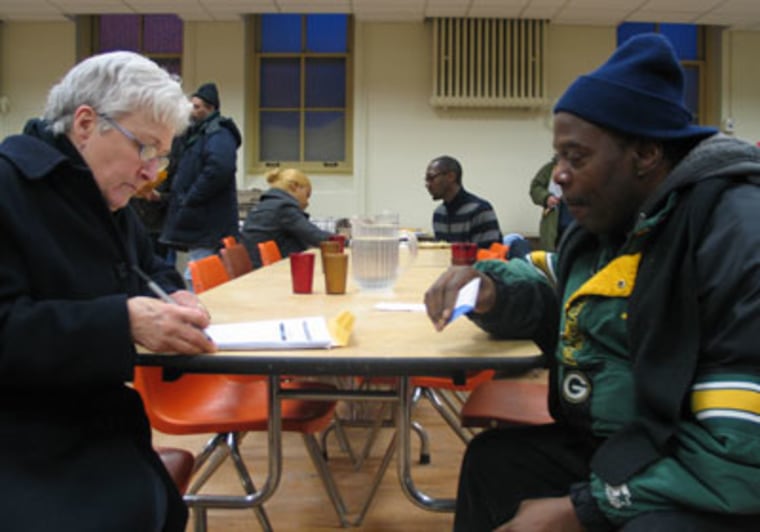Becky Groom always wanted to volunteer, but she had little time for it during her 19 years in business operations at Washington Mutual. Then she got laid off last year, and she started helping out at Habitat for Humanity's outlet store in Seattle.
The experience might have felt more fulfilling while she was still employed and eager to get away from her computer. Instead, it frustrated her, because it did nothing to forward her career and gave her no networking opportunities.
Now, she is in a new volunteer position, working pro bono as a project manager for a team of five professionals developing marketing materials for ElderHealth Northwest. She finds it an ideal situation: She's using her professional skills, making new contacts and learning about health care, one of the few fields where there's growth and hiring right now.
When you're out of work, volunteering isn't just about giving back to the community. It's also a way to keep your professional skills sharp, beef up your résumé and make new connections. The right volunteer job can help you get back in the workforce.
Groom found hers through the Taproot Foundation, which places people in assignments based on their professional experience. It operates in seven U.S. cities in a variety of fields, including finance, marketing and information technology. Its volunteers work in teams of five (they can do so remotely) for at least five hours a week, for periods of five months.
Groom wanted to parlay her finance background into a new career in health care, so she asked to work with a nonprofit in that sector. She has gotten to know the members of the board of ElderHealth Northwest and a number of health care executives. Her new colleagues have reviewed her resume and helped her tailor it for health care jobs, removing finance terms that aren't relevant. They've also gotten to see what a diligent worker she is and can recommend her for open positions.
That sort of thing is happening a lot, says Aaron Hurst, president of Taproot. "We've heard in the past that people were finding work from volunteering," says Hurst. "If someone has experience working with a colleague on a project, they'll be more likely to hire them because they already know them. It's like interning at a company."
Many unemployed Americans have already caught on. The Ronald McDonald House of New York has had a 10 percent increase in volunteers since this time last year; many say they were recently laid off. Applications to Taproot have increased a remarkable 171 percent, Hurst says. He attributes this partly to President Barack Obama's national call to service, but he knows it's also because of layoffs, since all applicants are asked why they're signing up.
"The majority these days say, 'I'm not unemployed and am looking for ways to stay engaged, to network and feel good about myself,'" he says.
The Ronald McDonald House of New York, which provides lodging for the families of hospitalized children, recently started making a computer lab available to its volunteers so they can network and look for paying jobs. They're also encouraged to volunteer at Wall Street Pink Slip Parties, which bring together recruiters and job seekers. When they do check-in or other work at the parties, Ronald McDonald House pays for their admission, which normally costs $20.
One way to find a volunteer job is through volunteermatch.org, a national organization that finds gigs based on your interests and geographical location. Another is Boardnetusa.org, which places people on the boards of nonprofits. You fill out a profile of your interests and professional skills; nonprofits then choose whether to interview you for their board positions.
"It's an excellent opportunity, as long as you're not doing it just to meet people," says Lynda Zakrzewski, national director of Boardnet. "The skills developed in being on a nonprofit board overlap the skills of leaders in corporate America —negotiation techniques, strategic formulation, recruiting talent, influencing."
As for Becky Groom, she's feeling a lot better about herself, even though she has been out of a job for a year. "This has really helped me feel more professional again," she says. "Having been out of work so long, I was starting to feel down and worried that I'd lose some of my skills. It's been a really good way to reengage and feel good about myself."
